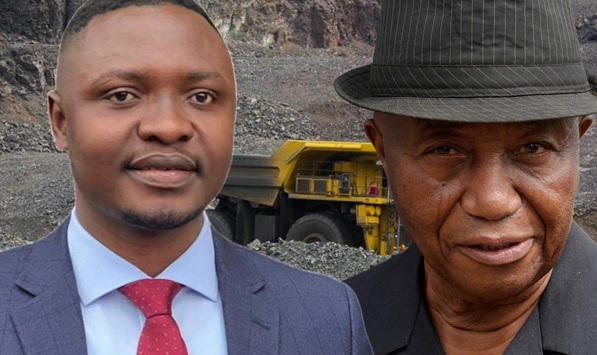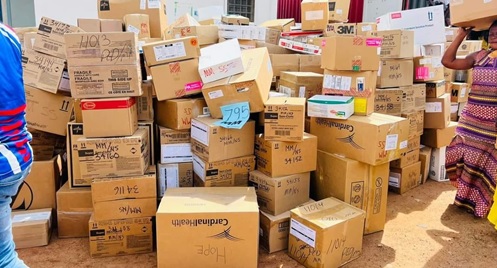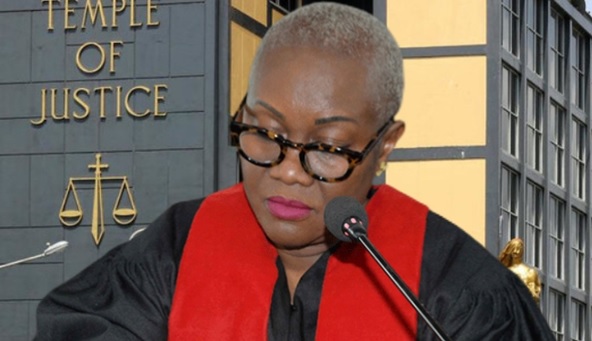MONROVIA – On Monday, June 20, Martin Kollie issued a memo to President Joseph Nyuma Boakai titled “Memo From The People To Their President – Edition 1,” expressing deep concern over the decision to restore Western Cluster’s permit. The memo, signed by Kollie, Chairman Emeritus Research and Policy Response JNB for President 2023, highlights a perceived betrayal of campaign promises and the discontent brewing in Bomi County.
Kollie argues that the 2006 Minerals and Mining Law of Liberia mandates every mining company to sign a Mineral Development Agreement (MDA) rather than a Memorandum of Understanding (MOU). He questions why Western Cluster continues to operate under a controversial MOU, despite prior commitments to end such practices. Kollie has attached a seven-page document outlining the perceived flaws in the MOU and urges fellow Liberians to scrutinize it.
Bomi County played a significant role in President Boakai’s electoral victory, delivering 25,377 votes, which constituted 52.68% of the total votes in the 2023 presidential election. This support was largely driven by the desire to terminate the dubious Western Cluster concession, which many residents believe fails to address their social, economic, health, and environmental concerns.
During his visit to Western Cluster’s mining site in Bomi County in May 2024, President Boakai made a strong policy statement, declaring that the company must build a railway or face shutdown. This declaration was celebrated by the citizens of Bomi and seen as a commitment to socio-economic reform. Subsequently, the Ministry of Public Works revoked Western Cluster’s road permit (RUP – 220620-004).
However, Kollie’s memo reveals that in less than 22 days, the government reinstated Western Cluster’s permit, allowing the company to resume operations under the same criticized MOU. Kollie questions the basis for this reversal and expresses concerns about the implications for President Boakai’s credibility and authority.
Kollie warns that overturning the initial decision undermines President Boakai’s position, making him appear weak in the face of exploitative foreign companies. This, he argues, sets a dangerous precedent where future statements by the President may not be taken seriously by these companies, thereby perpetuating the abuse of people and exploitation of resources.
Disappointment in Bomi is palpable, as evidenced by conversations Kollie has had with opinion leaders in the region. He emphasizes that while advisors close to the President may not relay this dissatisfaction, it is crucial for the administration to heed these concerns to maintain its popularity and credibility.
The memo also questions the financial rationale behind the permit’s restoration, noting that Western Cluster only paid $200,000 to repair a highway, despite generating millions from exporting iron ore. Kollie highlights the impracticality of such a small sum to repair significant infrastructure and points out the larger promises made in the MOU that remain unfulfilled.
Kollie details the environmental and health hazards posed by Western Cluster’s operations, including the damage to roads and bridges and the increase in lung diseases due to dust and air pollution. He stresses that the government’s priority should be to protect the health and well-being of its citizens rather than maintaining a dubious company’s operations.
The memo also recounts Western Cluster’s past failures, including owing the government $23.5 million, of which only $10 million was paid upon their clandestine return in 2022. Kollie criticizes the lack of accountability for these negotiations and calls for a shift from MOU to MDA to safeguard public interests.
Kollie’s plea to President Boakai is clear: revoke Western Cluster’s permit and institute structural reforms to protect the people of Bomi. He argues that business as usual cannot continue if the President is to uphold his legacy and the promises made during his campaign.
Kollie reaffirms his support for President Boakai’s vision for genuine change in Liberia but stands firmly against actions that undermine this goal. He calls for immediate action to protect the interests of the people and to ensure that the President’s legacy remains intact through principled and effective governance.







